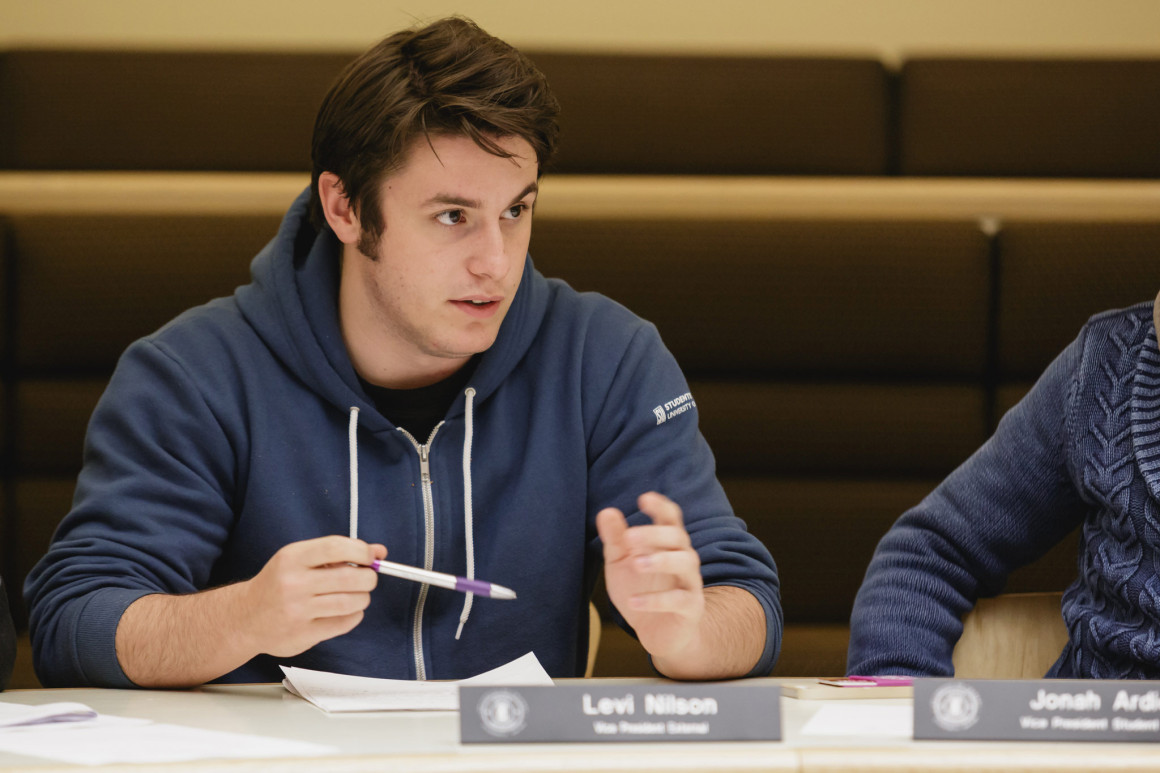
Students’ Union to set advocacy policy for international tuition
By Katy Atherholt, October 30 2014 —
The Students’ Union’s Advocacy Task Force (ATF) will soon unveil a policy to advise the university against raising international students’ tuition.
ATF said they will push to base international student tuition on cost-recovery, charging international students on what they don’t pay the provincial government in taxes, so international students aren’t used to subsidize other parts of the university.
“The SU doesn’t have any formal policies towards international students and is looking to solidify some of its current views in order to have a pre-determined stance,” said SU vice-president external Levi Nilson.
Nilson, who founded the ATF last summer, said international student tuition isn’t regulated by the provincial government. He said the U of C Board of Governors can raise international students’ tuition at any time by as much as they want.
“[Domestic students] get a tuition cap and [international students] don’t. They already pay around three times what domestic students do,” Nilson said. “We want to pass a policy that will prevent what happened at the University of British Columbia and the University of Alberta when international tuition was raised right in the middle of the year.”
The U of C wants to increase the total number of international students on campus from 10 to 15 per cent by 2016.
Nilson said other universities in Canada seem to take one of several stances. They either have a cap for international student tuition, a cost-recovery model or don’t have a particular stance.
“We found that international student tuition for U of C was the middle of the pack. Looking at the ratio of how much more international students pay than domestic students, it seems to be about average,” said Nilson.
First-year anthropology student Vonny Sidharta is from Indonesia. She said steady tuition hikes over the next couple of years will make it difficult for many international students to continue to study abroad.
“I have to pay about five times as much in tuition here compared to Indonesia. If the tuition was to rise more and more over the next four years, it’s unlikely that I would be able to stay here in Canada,” Sidharta said. “International students have a lot more pressure here too, dealing with already much higher tuition fees, expensive flights home and a lack of nearby family support.”
The SU will establish their stance on international student tuition in the coming months.
Average domestic student tuition sits around $538 per course and $1,833 for international students.
According to the UBC’s student newspaper, the Ubyssey, their administration is planning to increase tuition for incoming international students by 10 per cent. Annual tuition fees for non-Canadian students range from $23,999 to $38,398, depending on the program.
Over 200 UBC students gathered for demonstrations on campus to protest the proposed increase, as well as a 20 per cent increase in residence fees on Tuesday, Oct. 21.
